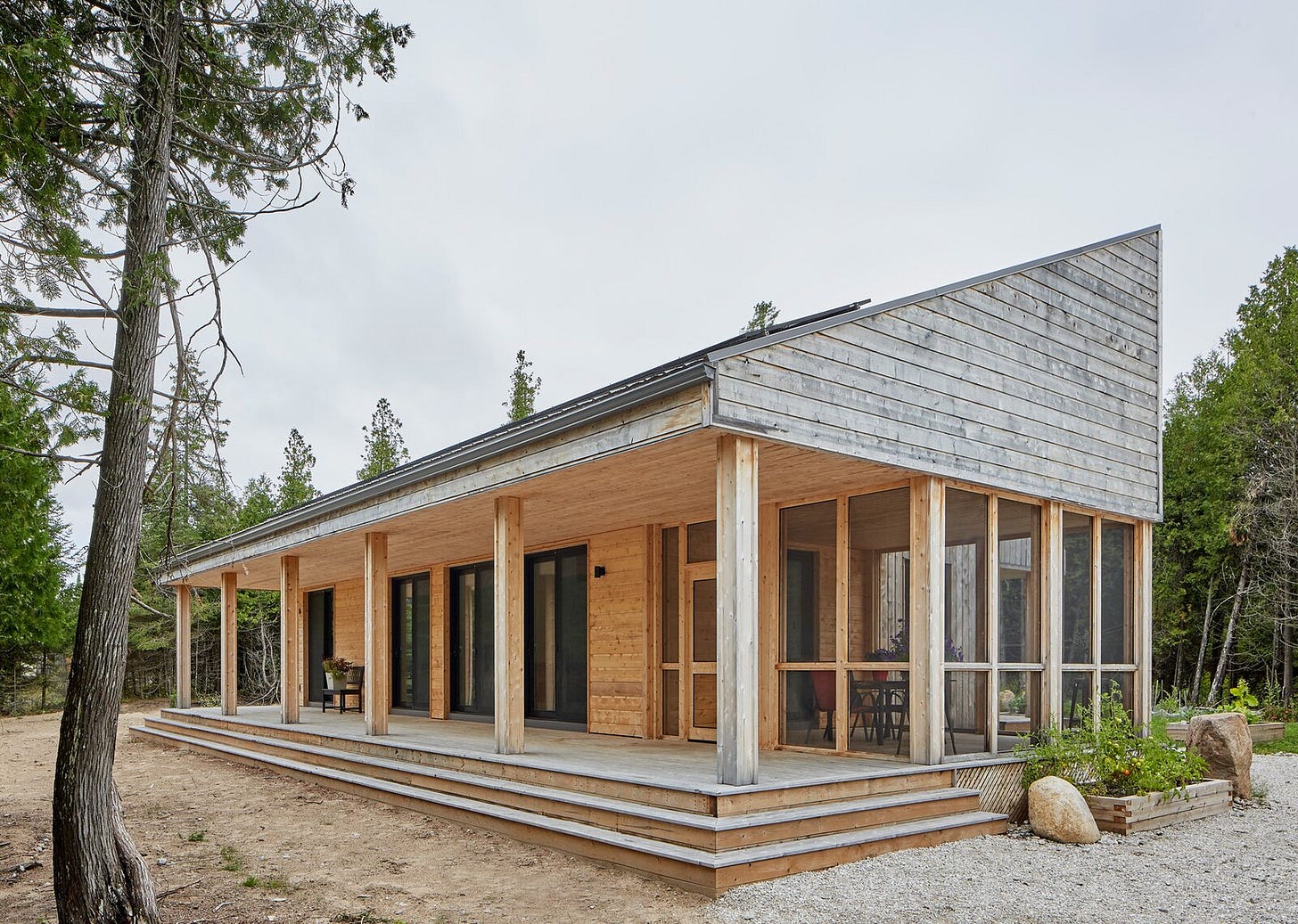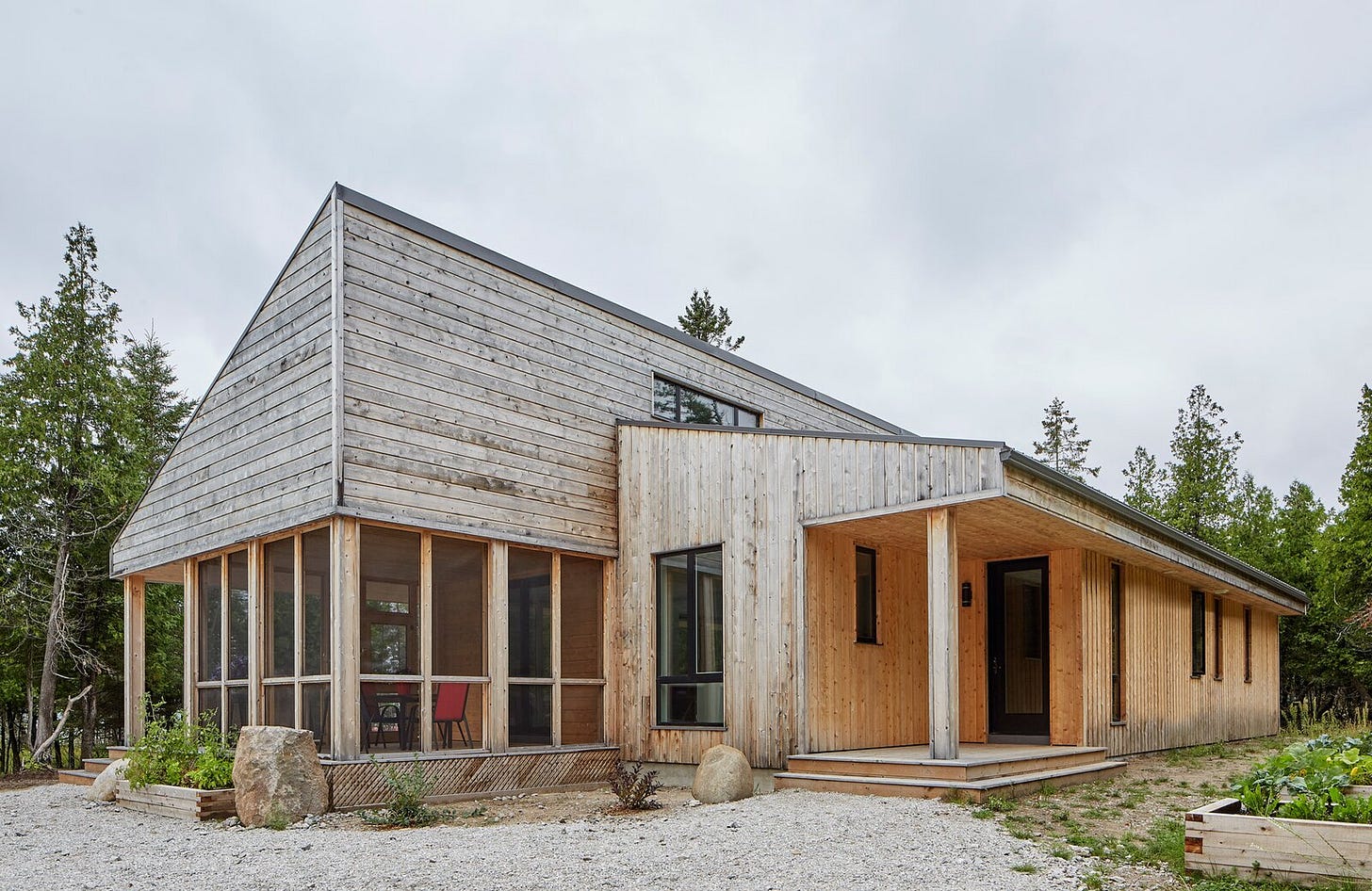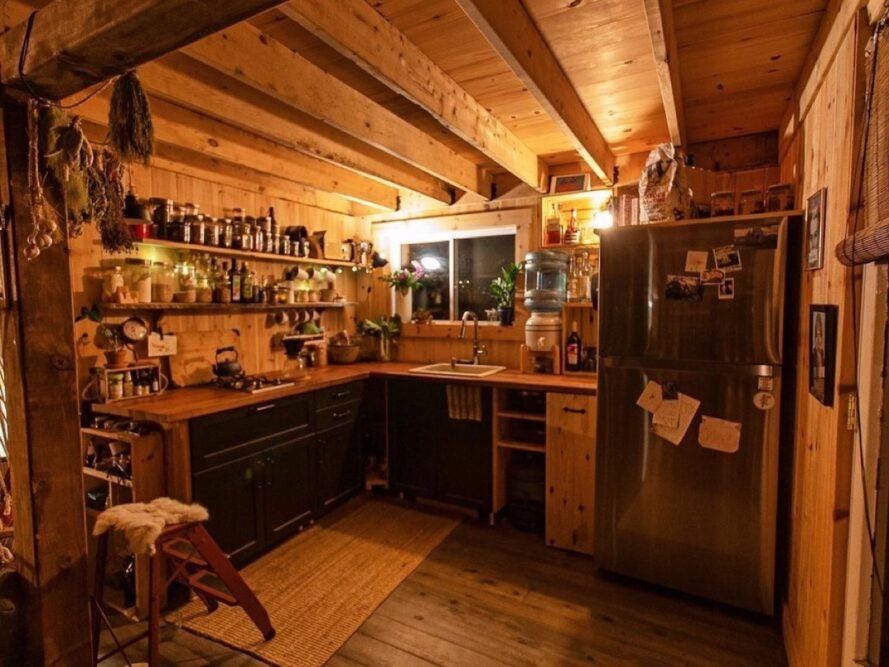One tiny home owner hoped her bus “Skoolie” would be her final residence, but it didn’t work out that way, according to a story in The New York Times
“Dream home to a jail cell.” Living in a tiny home during the pandemic.
A new story in The New York Times suggests that tiny home owners are feeling trapped and cramped in their small spaces during the pandemic.
The article feels a bit skewed. And there’s lots of panic.
“Nearly a year of staying within four walls can wreak havoc on anyone’s mental health. But those living in the coveted tiny homes that gained popularity about a decade ago — designed to erase debt, constraints and other limitations — have faced some significant burdens. They are unable to store large amounts of food, toilet paper and other pandemic necessities; they’re trapped in very small spaces; and many who relied on showers at gyms lost access to those facilities because of pandemic lockdowns. Also, as public parks and camping grounds shuttered or limited visitors, many tiny homes lost their domains,” writes Danielle Braff in the Times.
Oh crap. They can’t store large amounts of toilet paper. Actually, who does that anymore?
Braff is a freelance journalist with an impressive selection of clips. She’s written for everyone from The Washington Post to The Boston Globe, and so on, but she doesn’t appear to have a whole lot of experience with what it means to be off-grid or in a tiny home.
Her stories, for instance, cover topics ranging from How to Land a Mortgage without a Salary for the Chicago Tribune, to Las Vegas: A Kid’s Paradise for The Boston Globe.
While the people she interviewed are all freaked out, most of them haven’t set down roots or bought substantial land, according to Braff’s article. A lot of tiny home owners, at least in Nova Scotia, live on substantial plots of land, and so while their homes may be small, their personal freedom can often be large.
Give it a read, and let me know your take. I’d love to hear it.
“Pining” for a natural off-grid home? This might fit the bill
Off-grid on Manitoulin Isand.
“It turns out paradise is just a six-hour drive from Toronto….”
Personally speaking, I know that would be the case for me. No offence, Torontonians, but I lived in the Big Smoke, and I love your markets (Kensington, Lawrence, I’m thinking of you); your restaurants; and other amenities, but overall? No. Thanks.
But then who wouldn’t want to be off-grid on Manitoulin Island? Seriously.
Check it. Dwell has this sumptuous cabin with locally sourced pine. It’s beautiful, enough that it should be featured in Cabin Porn
I particularly love this quote because it’s the real deal about being off-grid in regions, like Nova Scotia, that don’t receive enough sunlight 24-7: “Solar panels collect energy daily for the beachfront home, and backup power is provided by a propane generator and batteries. "It’s tough to fully survive on solar in Canada," explains supervising architect Christine Lolley. "When people say off-grid, they really mean off the hydro grid. You’re pretty much always on the fossil-fuel grid in this country."
We need to work on that, right?
Your off-grid vacay in North Carolina awaits. Just don’t have everyone on the the far side of the house at once.
Tiny house living: try before you buy
You might not be ready to jump into tiny house living. So why not rent one and take it for a test spin?
Conde Nast Traveller offers nine options in the U.S. Like consider this place in Fletcher, North Carolina, that looks as if it might plunge off its cliff-side at any moment.
There’s no shower apparently, but the magazine notes: “This off-grid, timber-framed tiny house blows guests away with its panoramic views of the Great Smoky Mountains, glittery stargazing, and chance encounters with wildlife (deer, foxes, bears, even bobcats).”
There’s a barbecue, but watch the cap on internet data.
Or how about this spot in Red Cliff, Colorado? “Hugged by national forest, its views are expansive: Enormous windows make it easy to take in the scenery, including the peak of Holy Cross Mountain,” Conde Nast Traveller reports.
I’m in. How about you?
It has a “bathroom with a sink and a bath.” For $65,000.
Instagram worthy…maybe?
Honestly, $65,000 seems like a lot to get on Instagram. But Inhabit reports a “Canadian filmmaker” splashed out the cash to build a micro-cabin measuring 18 feet by 22 feet.
The main floor boasts a “combined living and dining area with a wood-burning stove, a kitchen with a propane two-burner cooktop and 110-volt fridge, and a bathroom with a sink and a bath.”
According to Inhabit, “the off-grid abode is now the filmmaker and his girlfriend’s full-time home, where they embrace slow living and share their experiences on Instagram @canadiancastaway”
Apparently, the home is in a “remote Canadian forest” and is “located atop a cliff in an untamed forest, the Canadian Castaway home took about three years to complete due to lack of road access and the difficulty of bringing building materials to the site.”
Mysterious!
Not so much. Google them, and they’re all over social media and on the east coast here in Canada.







in our house, the electric power has nothing to do with the heat, since we have wood heat only. unfortunately ours is definitely not a passive house, not even energy-efficient, as we needed a shelter quickly when we moved to our "empty" land and have just been adding on slowly. what we found with lead-acid batteries is that we definitely have to top them up with the generator at least once a week in the deep of winter. we already wrecked a whole set by not paying attention to that (even though with our new ones, the manufacturer expressly says to do that often enough). we can go for two cloudy days, but then in order to maintain our batteries in good shape, we have to run the generator. i am now saving up for more panels so that we can catch more of the sometimes elusive winter sun.
it certainly is a learning curve, and in my opinion very much also a matter of lifestyle choices. which may not be a bad idea to consider anyway if one is interested in a smaller footprint on this earth. which brings me to the NYT article. i always wondered about those tiny houses and how they would work in a less than ideal situation. seems that for some people they really do not. but then, being stuck in a small apartment in a big city cannot be much fun either. even if you can or don't feel the need to store lots of toilet paper (what IS with that, anyway???). from the article i got the impression that the tiny house owners relied heavily on external systems that ultimately they had no control of (gyms, campgrounds etc.) i feel that a certain amount of self-reliance helps a lot with my good sleep - and i am nowhere near the mindset of a "prepper"...
as a new reader here i am certainly looking forward to more tales from beyond the grid :)
Thanks for reading as always, Cynthia. We found from personal experience that even though we have 3,000 watts of power from a stand-alone array of 12 solar panels and eight lead-acid batteries capable of storing two days of power that during the shortest days of winter combined with excessive cloud cover we still had to run a gas generator once a week for a number of weeks to power the system. We did this after conferring with our solar provider, Green Lizard. The answer may or may not be more panels and batteries, but that's not something we currently have the budget for. And of course the further north you go, the more problematic it is to use solar because of the excessively short days.